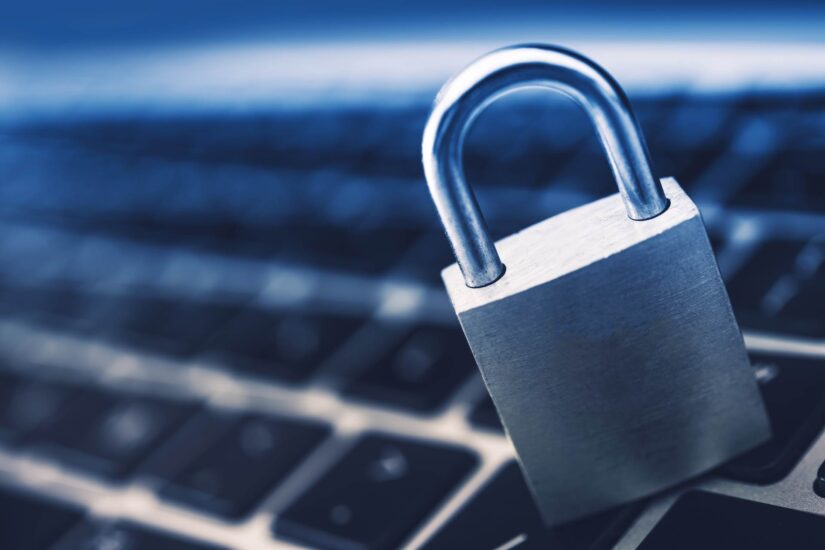Enterprise Data Security has become an increasingly important issue in the business world. As more companies rely on digital information, it’s critical to ensure that such data remains secure and protected from potential hackers or other malicious actors.
In this article, we explore the different levels of enterprise data security, as well as how businesses can take steps to protect their data assets.
We also consider some of the challenges organizations may face when implementing these measures.’
By understanding how to properly secure sensitive data, businesses can mitigate risks and maintain their reputation for confidentiality.
What is Enterprise Data Security?
To begin with, let’s look at the basics of enterprise data security: what is it and why is it so important? refers to how an organization safeguards its critical information from potential threats.
This includes safeguarding against unauthorized access to data, protecting against the loss of information, and ensuring the accuracy and integrity of stored records.
Enterprise Data protection is essential for organizations that rely on digital information, as it helps them maintain the confidentiality and privacy of their customers or clients.
In many cases, data security can also help protect a business’s reputation by demonstrating its commitment to protecting customers’ sensitive information.
Why Enterprise Data Security is Important?
Now that we understand why enterprise data security is important, let’s look at how companies can ensure they have adequate protections in place:
Establishing Access Controls
Organizations should establish clear rules regarding that who have access to confidential data, as well as what kinds of activities those individuals are allowed to do with the data.
This could include setting up authentication procedures as well as providing different levels of access depending on a user’s role within the company.
Implementing Security Solutions
Companies should invest in technology solutions such as firewalls and encryption software to protect their sensitive information.
Additionally, they may want to consider using multi-factor authentication or biometrics for an extra layer of security.
Monitoring Data Usage
Organizations should regularly audit their systems to identify any suspicious activity and take steps to address it if necessary.
It’s also important for companies to monitor any third-party vendors who have access to their data; as such vendors may not have adequate safeguards in place.
Training Employees
A security breach can often be traced back to careless or unaware employees. Organizations should ensure that all staff members are properly trained on data security procedures and best practices.
This training should include topics such as creating secure passwords, recognizing phishing scams, and understanding the company’s policies regarding sensitive information.
Finally, companies need to understand the challenges they may face when implementing enterprise data security measures. Enterprise Data protection we have the solutions.
For example, while technology solutions can provide an added layer of protection, they come with a hefty price tag and require ongoing maintenance costs.
Additionally, keeping up with ever-changing cyber threats is a time-consuming process that requires constant vigilance from IT departments.
What’s Included in Enterprise Data Security?
Enterprise Data Security is one of the most important aspects of modern digital businesses. With the proliferation of cloud services, mobile devices, and connected networks, organizations face an unprecedented risk of cyber-attacks and data breaches.
Businesses across all industries must prioritize security in order to protect their sensitive information from external threats.
Here are some of the most important factors in Data Security.
Data Management
Enterprise Data Security involves a comprehensive approach to data management. It includes measures such as access control, encryption, authentication processes, identity management systems, antivirus software and other tools that protect the organization’s network infrastructure from malicious attacks.
Additionally, it requires training for staff members on how to identify suspicious activities and take appropriate action if needed.
Organizations must also adhere to industry regulations such as GDPR or HIPAA to ensure that their data is secure and private.
Hosted Security & Firewalls
Enterprise Data Security Australia also requires sufficient resources such as Hosted Security & Firewalls Services
, intrusion prevention systems, and security protocols that help to protect against external threats.
Moreover, enterprises must continually monitor their networks for potential risks and act quickly to address any vulnerability that may exist.
Data Backup and Recovery
Despite taking all necessary precautions, data breaches, and cyber attacks can still occur. As such, having robust data backup and recovery services in place is critical.
This includes regular data backups, offsite storage, and disaster recovery plans to ensure that data can be quickly restored in the event of a breach or system failure.
Regular Audits
Regular audits should be conducted to ensure the effectiveness of their security measures, while policies and procedures should be updated regularly to keep up with the dynamic threat landscape.
At the end of the day, enterprise data security is essential for protecting an organization’s most important asset, its data.
By investing in the right tools, processes, and personnel needed to guard against cyber-attacks and other threats, businesses can safeguard their information from malicious actors and ensure the security of their operations.
For more information, contact Data Uptime for comprehensive data security solutions designed to protect your business from external threats.
Challenges Of Enterprise Data Security
Here are some challenges that some businesses face in enterprise data security.
Constantly Evolving Threat Landscape
Organizational data is constantly under attack from malicious actors attempting to gain access to sensitive information by exploiting security vulnerabilities.
To stay ahead of these threats, organizations must ensure their security systems are regularly updated and monitored for any new threats that may arise.
They must also be able to quickly identify and respond to any suspicious activity or breaches in order to minimize the risks associated with a potential breach.
Balancing Security and Usability
A key challenge facing enterprise data security is finding the right balance between creating secure networks and allowing users the freedom to use them without feeling restricted or frustrated.
Organizations need to create an environment where users can enjoy their digital experience without fear of compromising important information.
There are a variety of strategies organizations can use to achieve this balance, such as implementing multi-factor authentication and enforcing strong password policies.
Budget Constraints
A challenge that is often overlooked when discussing enterprise data security is the need to manage costs while ensuring an adequate level of protection.
Organizations have limited budgets and must make sure they are utilizing resources efficiently in order to maximize their return on investment in Enterprise Data Security Protection.
This involves making smart decisions about which security technologies to invest in, and understanding how much each one will cost in terms of both time and money.
The challenges presented by enterprise data security are significant but not insurmountable. By taking the time to understand these challenges and implementing the necessary security measures, organizations can ensure their data is safe and secure.
With a clear understanding of the risks associated with enterprise data security, organizations can create an environment where users can enjoy digital experiences without fear of compromising confidential information.
Conclusion
Enterprise Data Security is essential for enterprise organizations to protect their most important asset- their data.
It’s important that businesses prioritize investing in the right tools and processes needed to guard against cyber-attacks, while also striking a balance between creating secure networks and allowing users the freedom to use them without feeling restricted or frustrated.
Additionally, organizations must understand their budgetary constraints and strive for an adequate level of protection within those constraints for Enterprise Data Security.
By taking the time to evaluate potential threats and making smart decisions about which security measures are necessary for their organization, businesses can ensure their data is safe from malicious actors and remain competitive in today’s digital landscape.
To ensure your business IT security visit our IT Services
Visit our Facebook pages.






